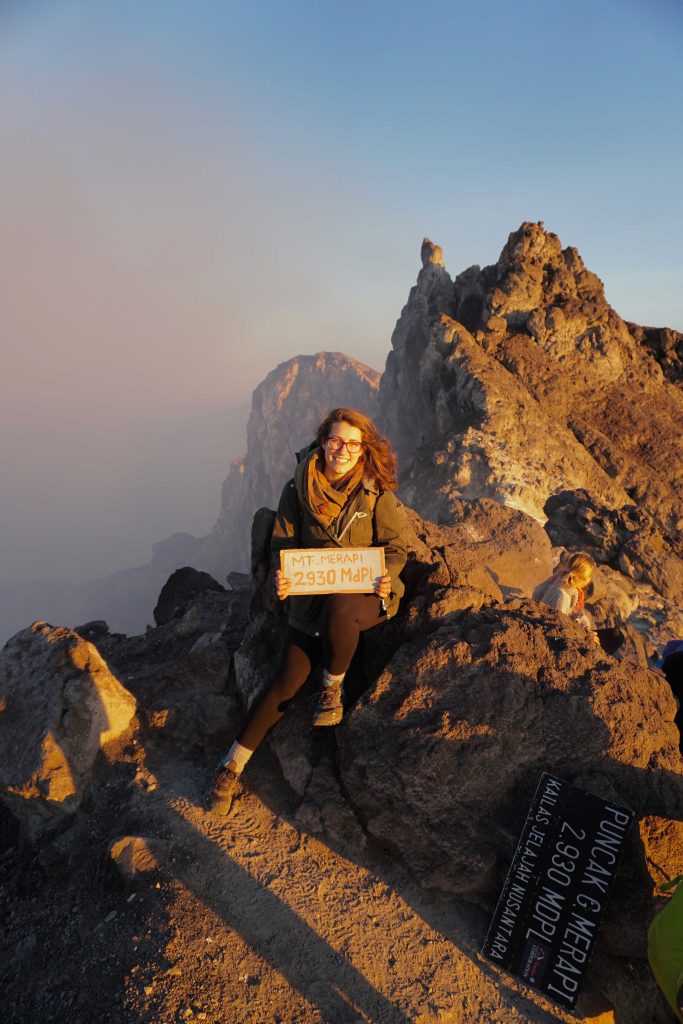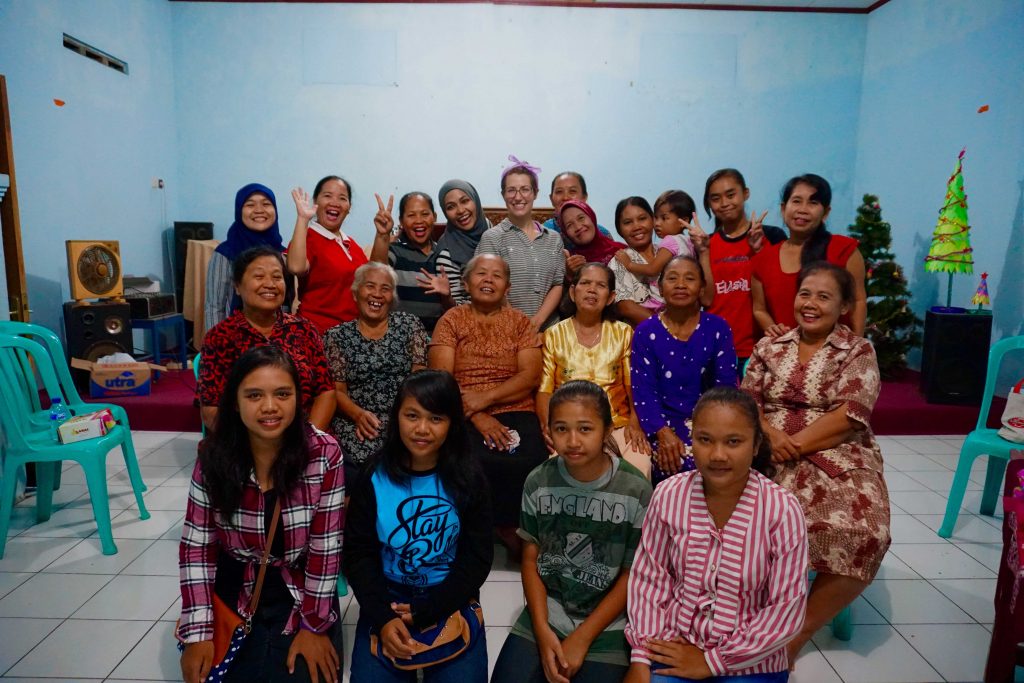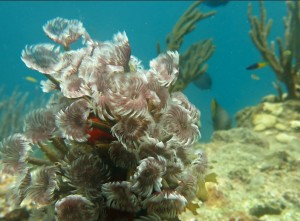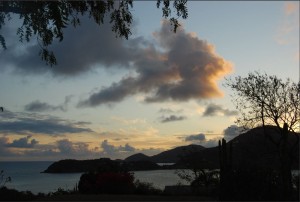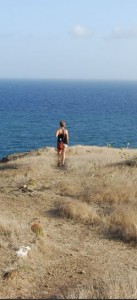This is the next in a series of posts by recipients of the Career Services Summer Funding grant. We’ve asked funding recipients to reflect on their summer experiences and talk about the industries in which they’ve been spending the summer. You can read the entire series here.
This blog is by Ashlee Anderson, SEAS ’15
After traveling for almost 12 hours, arriving in Düsseldorf was a bit of a daze. As I walked into the arrivals hall, there stood a McDonalds and a couple feet away a Starbucks, so it didn’t quite feel like I was in a different country. It wasn’t until I walked into a supermarket and realized that I couldn’t understand anything that was being said or read anything that I saw, that it hit me – I was in Germany, and I was about to embark on one of the best experiences of my life!
By the first weekend I could tell that my time in Germany was going to be nothing short of extraordinary. I experienced a record-breaking heat wave, followed by a massive thunderstorm, the worst the region has seen in over twenty years. But that night as the rains fell and the winds blew I was too excited to be bogged down by the weather. In fact, watching the storm from my window was more intriguing than anything else. It seemed somehow like the lightening and the thunder were more impressive in Germany. And not to be disappointed, the marvel of German efficiency shone true over the next couple days as streets and railways were cleared in impeccable time and the city of Essen was back to normal in a matter of days!
As the month of June went on, the excitement of learning German, exploring the Ruhr area, making news friends, and of course, being in Germany for the World Cup, grew with every passing day. I love languages so it was a joy going to our German class everyday, learning the language and the culture, and seeing evidence of their efficiency everywhere, even in their grammar! The university tours, company visits and cultural excursions throughout the Ruhr area were equally as interesting. The Civil Engineering department at the University of Essen made the theory of stress and strain practical as we tested the yielding point of concrete samples; as a Mechanical Engineer I felt right at home as during our tour of TU Dortmund’s Institute of Forming and Lightweight Technologies; and the Ruhr University in Bochum knew that we wouldn’t be able to resist delicious ice-cream made from liquid nitrogen! The company visits left me awestruck. The vastness of the Thyssen Krupp steel manufacturing plant, the depth of the Prosper Haniel Coal Mine, and the simple genius of the Axel Springer printing press gave me a new appreciation for the manufacturing industry and a deeper understanding of why German products are so revered. And the cultural excursions were not to be out done! Our visit to Zeche Zollverein, an old coalmine that has been refurbished into a museum, was a perfect example of how old and new can co-exist; and the FC Shalke 04 football stadium was in one word – impressive. Not surprisingly, one of the most impressive things about the stadium was the amount of beer sold on a typical match day, and subsequently, their ingenious beer distribution system that keeps their fans happy and refreshed. There was truly no better place to enjoy good beer and exciting football than in Germany this summer.
By the time July came around German spirits were high as the national team advanced gallantly through the World Cup, and there was good weather for the lucky lot who were enjoying their three-week vacation. My high sprits however came from the excitement of starting my internship at TRIMET Aluminum AG Essen. At TRIMET, I was introduced to the primary manufacturing stage of aluminum, that is, the process of converting aluminum oxide (alumina) to molten aluminum via electrolysis. The molten aluminum is then transferred to the furnace where various alloying elements are added based on customer specifications. Finally the liquid metal is casted into either slabs, ingots or billets, heat treated, and packaged for customer delivery.
I worked on two main projects in the R&D division while at TRIMET. The first was an independent project: a literature review on the use of aluminum alloys in crash boxes and crash management systems in the automotive industry. As a senior planning to pursue graduate studies in Automotive Engineering this project was of particular interest to me. Though most of my initial days were spend siting at my desk reading, I enjoyed it and from it I gained a wealth of knowledge I would not have otherwise encountered. In addition, it gave me time to become acquainted with the machines and processes throughout the labs and to get to know my coworkers without the pressure of a hectic project. The second project was collaboration between myself and another student intern investigating the feasibility of implementing a new casting method. This project was a lot more hands on and I had the opportunity to be involved in each stage of the research and development process. Like the previous project, I started off reading a couple papers and reports, but by the time lunch rolled around I had donned my safety gear, hard hat, steel-toed boots, glasses and all, and I was on my way to the casting house. One of the fascinating things about doing R&D at TRIMET was that there were dedicated R&D furnaces and casting pits right alongside the furnaces and casting pits used in production, so I truly felt like I played a role in the entire process which was as important as the employee standing next to me. After setting up the casting table, adding the alloying elements to the furnace and casting the aluminum billets we took some samples back to the lab where I was taught how to grind, polish and etch the aluminum samples in order to analyze the microstructure.
Though I gained a lot of knowledge and practical skills in just a month, my experience at TRIMET would not have been the same without the people. The R&D division at TRIMET is a close-knit family and they welcomed me with open arms. The diligent handshakes each morning, the anticipated chorus of “Mahlzeit” (which translates to Mealtime) as we prepared for lunch, and the well needed coffee chats after lunch to give us that extra kick for the last couple hours of the day, each experience teaching me a little more about German culture and the warmth of the German people.
It seems that my time in Germany ended almost as soon as it begun, but not without a few more memorable moments: Germany being crowned World Cup Champions 2014, fireworks along the Rhine in Cologne, the sunrise in Vondelpark, Amsterdam, and pub hopping in Brussels, just to name a few. I guess it really is true that time flies when you’re having fun!
 This summer I spent a month in Accra, Ghana executing a Water, Sanitation, and Hygiene (WASH) program in a local school. The program was aimed in teaching children about issues pertaining to WASH whiles allowing the children to develop a project that they felt could help with some of the issues they discussed. The teaching style was done in a project based manner. Hence, the students did multiple mini projects to learn about the issues that surround water, sanitation, and hygiene.
This summer I spent a month in Accra, Ghana executing a Water, Sanitation, and Hygiene (WASH) program in a local school. The program was aimed in teaching children about issues pertaining to WASH whiles allowing the children to develop a project that they felt could help with some of the issues they discussed. The teaching style was done in a project based manner. Hence, the students did multiple mini projects to learn about the issues that surround water, sanitation, and hygiene. started off by having a general discussion on the importance of water as well as general facts of what water is. This was followed up with a discussion on the importance of safe drinking water, how to distinguish between safe and unsafe drinking water, and how to purify water. After each topic discussion, we had the students write new things that they had learned. Most of the discussion involved proposing questions to the students and having them discuss with their peers. This allowed for them to think critically about the issues and share out the information to each other. This depicted that the students had some knowledge on the issues and by coupling the discussions with interactive presentations we were also able to provide more information. Additionally, we showed them a movie that discussed the importance of water and how lack of it and safe drinking water affected communities around the world. This forced the students to think of their home communities and how they may be affected and what change could be done in the slightest manner.
started off by having a general discussion on the importance of water as well as general facts of what water is. This was followed up with a discussion on the importance of safe drinking water, how to distinguish between safe and unsafe drinking water, and how to purify water. After each topic discussion, we had the students write new things that they had learned. Most of the discussion involved proposing questions to the students and having them discuss with their peers. This allowed for them to think critically about the issues and share out the information to each other. This depicted that the students had some knowledge on the issues and by coupling the discussions with interactive presentations we were also able to provide more information. Additionally, we showed them a movie that discussed the importance of water and how lack of it and safe drinking water affected communities around the world. This forced the students to think of their home communities and how they may be affected and what change could be done in the slightest manner. The last week was devoted to executing a project of the students choosing that would aid in solving WASH issues. The students decided that they wanted to create posters to put up around their school and in some of their neighborhoods that discussed these issues as a tool for educating their communities. This allowed the students to feel empowered with knowledge and give them a sense that they can be change makers.
The last week was devoted to executing a project of the students choosing that would aid in solving WASH issues. The students decided that they wanted to create posters to put up around their school and in some of their neighborhoods that discussed these issues as a tool for educating their communities. This allowed the students to feel empowered with knowledge and give them a sense that they can be change makers.

